Have you ever been to a small, locally owned "talyer" (car repair shop) here in the Philippines? Have you tried doing an oil change by yourself to save money? Of course, you have! You’re here in Philkotse.com after all, which means you’re savvy.
Well, did you know that some workshops here in our country are usually filled with automotive fluid containers lying around, and the floors (either concrete or plain old dirt) are stained with oil or transmission fluids?
In these small auto shops, some workers also go about their work without proper protective gear and will handle engine oil with their bare hands all the while wearing soaked clothes all day.
Some particularly despicable dudes even throw their car fluids just about anywhere. That can be a harmful thing. Oil, transmission fluid, brake fluid, and other liquids from your car are definitely harmful to the environment and, in the long term, your own health.
Dispose of your used motor oil properly
>>> For your further reference: Top 4 essential fluids in your car
1. Environmental and Health Consequences of Automotive Fluids
Automotive fluids are specifically made to cool, provide pressure, and lubricate the many different parts of your car.
Unfortunately, many of these liquids are really bad for the environment. When you just throw them anywhere - intentionally or not - they contaminate the air, seep into the ground, and in some cases even waterways.
These fluids can also kill plants and animals and us. So here we list what common automotive fluids can do to harm us and the environment.
Transmission fluid
Transmission fluid or oil is very viscous and is designed to ensure the smooth operation of your car’s transmission. Because of that viscosity, it is hard to clean and will stay stuck to wherever it has spilled for a very long time.
This can be especially dangerous in the long run especially if exposed to the sun as it will break down and will release hydrocarbons into the air. These hydrocarbons can and will affect the respiratory system of people and animals alike. It will also kill plants, especially if in close proximity to the spillage.
Coolant
The coolant in your vehicle radiator has a number of chemicals in it. One such chemical is ethylene glycol which is very harmful as it can cause serious damage to the nervous system of both animals and humans. Like transmission fluid, plants will also die if exposed to the coolant.
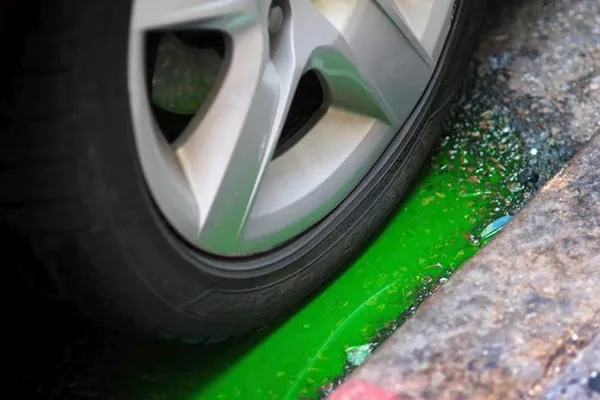
Typically coolant can come in a bright color and is very evident if it has leaked or spilled
Engine oil
Automotive engine oil, especially used oil, contains lead, arsenic, cadmium, chromium, and benzene. These are definitely harmful to the environment and humans.
If used oil manages to get into bodies of water, it can stop sunlight from penetrating the water’s surface, and also deprive oxygen of aquatic life. Burning oil can also create airborne pollutants which can adversely affect one’s health.
Windshield washer fluid
Usually, washer fluid is mostly made up of methanol. That chemical is quite nasty especially if ingested, comes in contact with your skin, inhaled, or splashed in your eyes. Methanol or methyl alcohol can affect the central nervous system and cause damage to your kidneys.
>>> Read more: Simple Tips to DIY Your Windshield Washer Fluid
Power steering fluid
If inhaled, this fluid can definitely cause respiratory issues. When ingested it will lead to diarrhea. If steering fluid enters the environment, it will become degraded by nature into its component chemical ingredients and almost all of those are equally toxic to plants and wildlife.
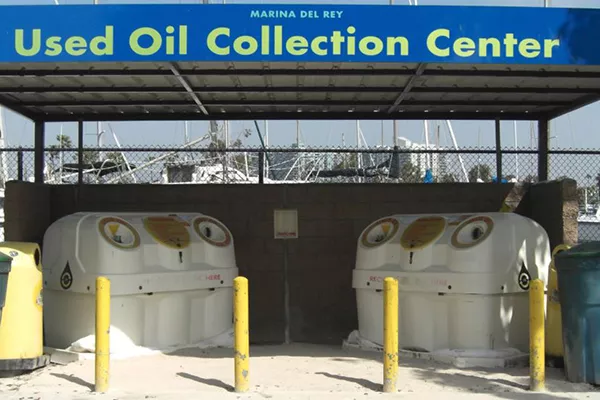
Some places have places specifically for disposing of hazardous waste
2. So how do I get rid of them?
In general, it’s good to start with reading the manufacturer’s note that can be found in the product packaging. If that isn’t available, here are some useful tips on how to dispose of these automotive fluids.

It's a good idea to not any of these fluids on your skin so wear proper clothing when working on cars
Transmission fluid
- In the Philippines, most gasoline stations with maintenance bays will accept used oil. The case is the same for many auto parts stores and service stations. Some will even buy them from you for recycling.
- As with any automotive fluid, make sure not to get any on your skin.
- Place the used oil in a leak-proof container and store in a cool dry place away from heat, children, and pets.
- Make sure the container you’re using is clean as used motor oil mixed with other fluids can’t be recycled.
- Engine oil
- Like the above, consult your local recycling officer first. Typically, each barangay in the Philippines has one. If that isn’t possible, there are accredited local refuse collection points out there that you can go to.
- Drain the radiator into a pan with as little spillage as possible. Use mechanic’s gloves and protect your eyes, mouth, and nose. Do not get any on your skin.
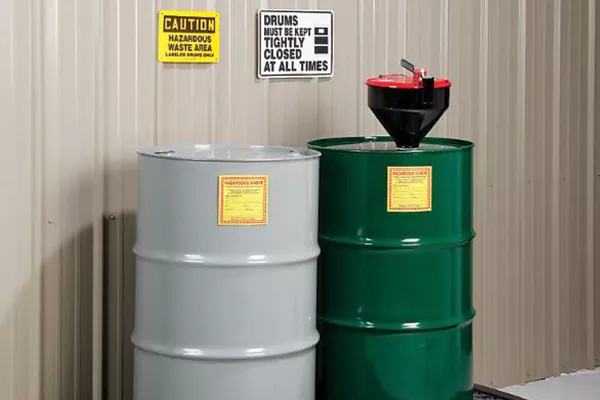
Here is a proper example of storing used oil. Note the labels and the warning signs
- Use a clean funnel and a clean leak-free container for the coolant.
- Coolant
- If you’re draining them out from your car, make sure to use a drain pan that is able to contain more than 11 liters. Make sure to use proper tools and use mechanic’s gloves. Do not let the fluid come contact into your skin.
- Don’t just store the transmission fluid in the pan. Find a leak-proof container and use a funnel to avoid spilling. Make sure the lid is tight and leak proof by placing a piece of plastic cellophane then closing the cap. Keep in a cool place away from sunlight, children and pets.
- Facilities and/or businesses like Total and some gasoline places might be willing to take your transmission fluid.
Windshield washer fluid
- Do not let get this onto you, and never mix with other fluids.
- Place the washer fluid you want to throw away in a leak-proof container.
- Windshield washer fluid cannot be recycled and must be disposed of at a local hazardous waste collection station.
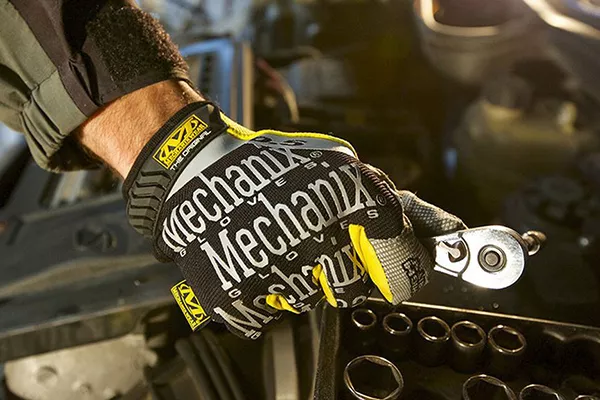
If you are regularly in contact with automotive fluids its a good idea to invest in a pair of mechanic's gloves
Conclusion
Here in the Philippines, information regarding the disposal of hazardous waste is still lacking despite the obvious harm automotive fluids can do to your health and the environment.
However, there are accredited facilities out there which can correctly dispose of automotive liquids. Some can be found listed on the Philippine Environmental Management Bureau’s website.
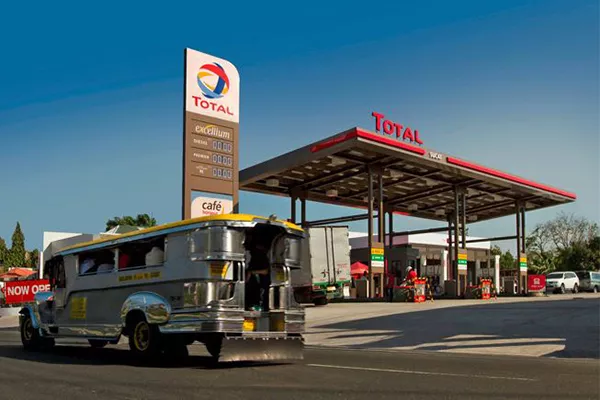
It's a good idea to try at a nearby local gas station in disposing your automotive fluids
So please, in order to ensure you and your family’s safety, as well as the health of our natural resources, please follow the steps listed above and be informed about where to throw your vehicle’s waste fluids. Keep safe and happy wrenching.
Follow Philkotse.com for more useful car maintenance tips.
Recent posts
- 7 effective ways to reuse your used motor oil Aug 16, 2022
- What’s your Engine Oil Telling You? Nov 18, 2022
- Everything You Need To Know About Brake Fluid Aug 17, 2022
- Distilled water vs Coolant: Which is the best product for your radiator? Mar 06, 2021
- 5 signs to check if your car needs an oil change Dec 12, 2017












